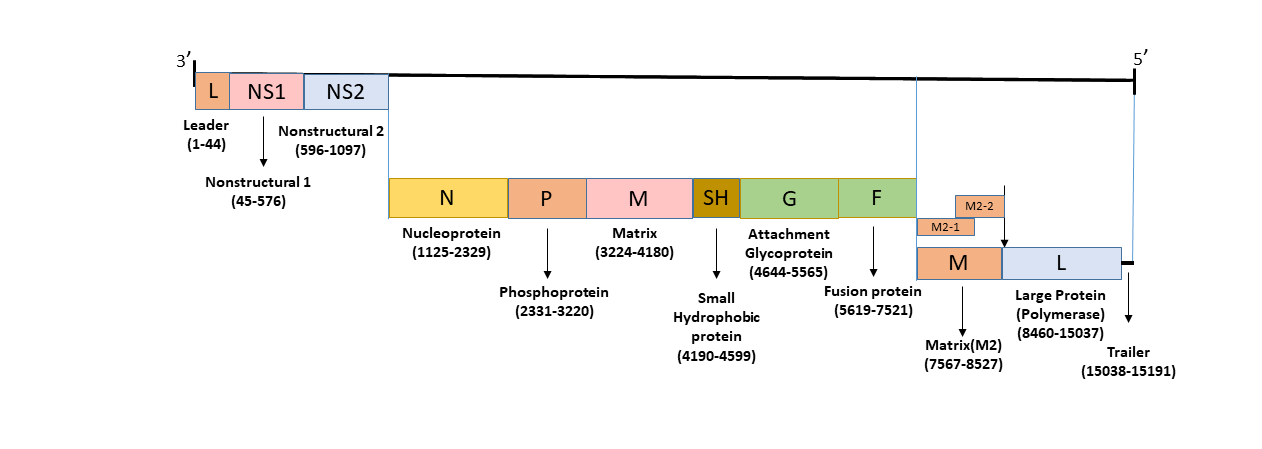order histories, retained contact details for faster checkout, review submissions, and special promotions.
Forgot password?
order histories, retained contact details for faster checkout, review submissions, and special promotions.
Location
Corporate Headquarters
Vector Laboratories, Inc.
6737 Mowry Ave
Newark, CA 94560
United States
Telephone Numbers
Customer Service: (800) 227-6666 / (650) 697-3600
Contact Us
Additional Contact Details
order histories, retained contact details for faster checkout, review submissions, and special promotions.
Forgot password?
order histories, retained contact details for faster checkout, review submissions, and special promotions.
Pneumoviridae (RSV)
The family of Pneumoviridae are large enveloped, non-segmented, negative-sense, single-stranded RNA viruses. The genus Orthopneumovirus includes human respiratory syncytial virus (HRSV) and bovine respiratory syncytial virus (BRSV), and the Metapneumovirus genus contains avian and human metapneumoviruses.

About Pneumoviridae
Pneumoviruses produce spherical and filamentous virions that range in size from 150-200 nm in diameter and contain a 115-kb genome that encodes 11 proteins. Included are three viral envelope proteins (G and F glycoproteins and the small hydrophobic protein) and eight other proteins, including the large (L) polymerase protein, nucleoprotein (N), phosphoprotein (P), three matrix proteins (M, M2-1, and M2-2), and two nonstructural proteins (NS1 and NS2).

The virus enters the cell by binding to the HN glycoprotein, fusing to the host plasma membrane, and then releasing the nucleocapsid. Viral mRNA is then transcribed by the virally encoded RNA-dependent RNA polymerase, and viral proteins are produced by host ribosomal machinery. After P, N, L, and M2 proteins are produced, a capsid is created around the newly replicated RNA genome to produce a ribonucleocapsid. The virion then buds from the cell membrane.
Respiratory syncytial viruses (RSV) are among the most important pathogenic infectious agents in children, and a leading cause of death globally in infants under 1 year of age. These viruses can cause upper respiratory infections similar to the common cold, but also can cause bronchiolitis, otitis media, pneumonia, and croup, and mortality in children with preexisting cardiac or lung disease. Reinfections, as well as co-infections with rhinovirus and adenoviruses, can also occur. In other cows, bovine respiratory syncytial virus (BRSV) is the major cause of respiratory disease in calves during the first year of life. There is currently no efficacious RSV vaccine and very few therapeutics to treat RSV.
References
- Borchers, AT et al. Respiratory Syncytial Virus-A Comprehensive Review. Clin Rev Allergy Immunol. 2013; 45(3):331-379. doi: 10.1007/s12016-013-8368-9
- Griffiths, C et al. Respiratory Syncytial Virus: Infection, Detection, and New Options for Prevention and Treatment. Clin Microbiol Rev. 2017 Jan; 30(1):277-319. doi: 10.1128/CMR.00010-16
- Sarmiento-Silva, RE et al. Epidemiology, Molecular Epidemiology and Evolution of Bovine Respiratory Syncytial Virus. Viruses. 2012 Dec; 4(12):3452-3467. doi: 10.3390/v4123452










